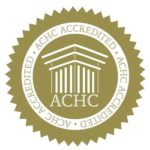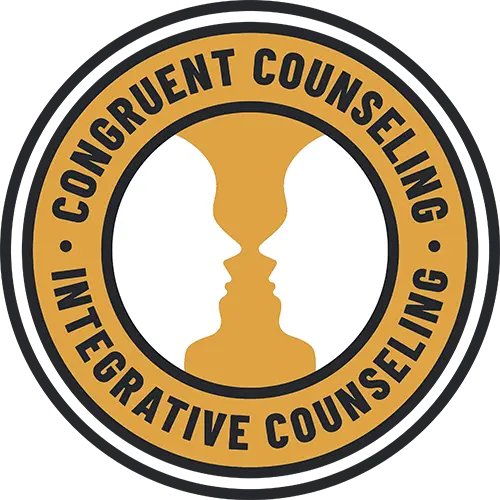Teen Substance Use Treatment
Teen/Adolescent Treatment
If there is not change, nothing Changes
It takes a special kind of person to work with teens, particularly difficult substance abusing teens. We are proud to have clinicians who really like to work with teens and families.
Most teens/adolescents are not addicted to substances, though an addictive potential or family history may influence a teen’s use. Substance use in the teen years does more damage to a person’s brain than at any other time in their lives. The only way to get a teen to stop using substances is to get them to decide to stop using. Old, false logic says treatment will not work until a person is ready. Of course, Our job is much easier if a teen comes to us already wanting to stop! We love those clients!! But that is rare and the likelihood of a teen being “ready” before something horrible happens is very low. Normally, our initial job is to encourage or debate the teen about why to stop or what benefits they personally will get if they stop. We need to keep this concrete and short term focused as much as possible. Then, once they are ready, we can teach them how to stop and how to “stay stopped”.
Have Questions?
Contact us if you have any questions or to schedule an assessment.
While Integrative Counseling works towards abstinence, we also work to address other areas usually suffering as a result of the use or causing the use. These issues might include genetic history, family problems, communication or peer problems, school or learning difficulties, mental health problems, Self esteem problems, or legal concerns. Most adolescents who abuse substances have stopped maturing and may be making decisions at a 10- or 12-year-old level.
Parents are encouraged to schedule family sessions or parent-only sessions to discuss how to best help your child. Often parents get stuck playing the bad buy or the “cop”. We need to help parents change how they work with their teen to help their teen change. It is very hard to help teens change if parents don’t change some as well.
Brief Alcohol and Marijuana Education Program
- Education about the effects of tobacco and alcohol for teens including the ideas behind “gateway drugs.”
- Education about the effects of Marijuana and strategies for stopping the use of all substances.
- Parents may choose to meet with a counselor to discuss how to help their teens stay clean and how to recognize problems. This allows parents and teens to make changes or to address other mental health or family concerns. Sometimes, a child’s experimentation is related to difficult social interactions, stress in the home, peer or school stress, anxiety, ADHD or depression. Parents may choose to meet with the therapist alone or as a family with their child.
Intensive Outpatient Program for Teens
 Some teens struggle more than others and may be in need of increased support. Teens who have not been able to succeed at other treatment programs, those who have been in an inpatient facility for mental health or substance use issues, or for those who are out of control, we provide additional support. Integrative Counseling has paired with Congruent Counseling Services to offer a dual diagnosis Intensive Outpatient Program for teens with substance use issues or dual mental health and substance use issues. Congruent Counseling has been able to create an intensive program that is both Licensed by the State of Maryland and Nationally Accredited By ACHC. The IOP is covered by most insurance plans. Please Contact Us to see how we might be of service or if this program might be covered by your insurance.
Some teens struggle more than others and may be in need of increased support. Teens who have not been able to succeed at other treatment programs, those who have been in an inpatient facility for mental health or substance use issues, or for those who are out of control, we provide additional support. Integrative Counseling has paired with Congruent Counseling Services to offer a dual diagnosis Intensive Outpatient Program for teens with substance use issues or dual mental health and substance use issues. Congruent Counseling has been able to create an intensive program that is both Licensed by the State of Maryland and Nationally Accredited By ACHC. The IOP is covered by most insurance plans. Please Contact Us to see how we might be of service or if this program might be covered by your insurance.
Traditional addiction treatment often does not address mental health concerns. Mental health treatment often ignores addiction or substance abuse issues. Both options treat only half the client’s needs. Congruent Counseling seeks to address multiple issues at once – a whole person approach.
We address both mental and substance related issues at the same time utilizing group therapy, psycho-education, individual therapy, family group sessions, and family counseling. This Intensive Outpatient Program is intended for teens who have had serious family, mental health, social, legal, or school problems; who might not have succeeded in treatment previously; or who have a serious addiction. This is a structured treatment program offering treatment three days a week for three hours each day. The goal of this program is to help teens with serious substance abuse problems and possible co-occurring mental health issues to accept what they need to do in order to succeed in life.


Group or Individual Counseling
Integrative Counseling offers individual and group counseling for teens who have been experimenting with substances. These teens may have been caught by their parents, by their school, or may have received a citation from the police. Often, these teens have other areas of concern including family problems, school problems or declining grades, inappropriate peers or a change in friends, depression or other mental health concerns, or more. Integrative Counseling is careful to assess all of these areas and help you address them all at once. If there is some difficulty we can’t help with, such as a medical issue, we will help you find someone who can help. We know it is important to help the whole child in order for them to grow and get better.
Often substances are used to address issues of self-esteem,an inability to fit in, or to address depression or family difficulties. Most teens haven’t been using long enough to be using compulsively. Most are not addicts. If we can help teens resolve their concerns then there will be no use for the substances they are abusing. For those few who do struggle with addiction or who have an intense family history, we can help them as well to develop health patterns that allow them to live happy, drug or alcohol free lives. We work closely with parents and help kids to choose to make a change.
Parent Support
We find that if parents attend and participate in treatment, teens get better faster! This means the child and family are doing better and are happier quicker. This also greatly reduces the long-term cost of treatment.
Our teens cannot make changes without changes in the family. We can’t “fix” your child without your help. One of the best support systems a parent can have is other parents who are experiencing similar problems. In order to help each other, Integrative Counseling has an open group room during most of our teen groups so parents can meet. This time is encouraged for parents to get together, learn from each other, and develop strategies to help your child. Who better to help you than a parent of a child who is getting better?
Parents of teens in our IOP program are expected to attend a Parent/Teen group meeting on Fridays at 5:00 PM. A room is also made available for parents of kids in our IOP on Fridays at 4:00 PM – just prior to our family group. This time can be used to prepare for the family group so you and your teen get the most out of that time. Teens in our IOP often have multiple issues that need to be addressed including mental health or social issues.
Parents may also choose to meet with a counselor or therapist to develop skills and insight into how to best help your child. We recommend all families develop some form of “behavioral contract” so everyone in the family knows what is expected and what the consequences are if these expectations are not met. This “contract” needs to be a constantly modified document to meet the changing needs of the family.
Medication, Individual Counseling, and Testing
Most often, teens are abusing a substance to meet some need. Some reasons may include to fit in, decrease stress, calm ADHD, “medicate” depression, distract from family problems or divorce issues, feelings of loss and many more reasons. In some cases, taking away the substance the teen is using leaves a void the child was trying to fill. We need to address that void as they are making changes to “get clean.” Otherwise we are just causing them pain by taking away something they believe was helping.
We will work with you to determine how to best help your child. We have more than 30 therapists on staff who have experience with kids, teens, and families. We find we are able to be more effective because our group leaders, our therapists, and our psychiatrists are able to talk easily. This helps us tailor treatment to your needs. If your teen is already seeing another therapist in another practice, we encourage you to continue working with that therapist. Even while your teen is attending substance use treatment with us, it is important to continue to address any mental health concerns. Ideally, we would like to be able to talk with that therapist to help ‘keep us on the same page’. See our list of therapists and their specialties.
In some cases, a teen may need medication for depression, anxiety, ADHD, or other mental health issues. We are lucky to have Dr. Joshua Rosenthal working with us. He has extensive experience with kids and families. He even offers extra time to make sure he is meeting your needs. See more at our Psychiatrists page.
Relapse Prevention
Integrative Counseling offers an ongoing support group for teens that have completed treatment. Research shows the longer a person stays connected with a program, the longer they maintain healthy changes. When they are doing well, and have made changes in their life, it is still difficult to continue doing the right thing. Old peers or stressful home situations can cause a teen to return to old (bad) habits. The relapse prevention program offers a safe place for teens to discuss pressures and options. Most teens choose to attend one hour of the IOP program where they get to be Mentors’ for newer kids in the program. Some choose to just attend an outpatient group. Other teens, also having similar influences, can provide a healthy support system for teens in need.
We recommend a teen attend the Relapse Prevention group for at least six months after completing outpatient treatment. Some teens have opted to stay in the group for longer because it provides a safe place to process ongoing stressors and maintain change.
